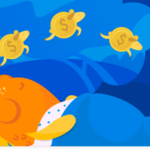 Diversity Marketing is a subject that is very close to my heart. Back when I first started my career, I was closely involved with the development of segmentation models and understanding customers at the individual level; it was the era of one to one marketing, heralded in by Peppers & Rogers. It was a time when CRM didn’t yet mean systems and databases, but a philosophy for business that meant putting decision-making about individual customers at the heart of strategy. It was a time which promised the end of scattergun spam marketing, hoping something might stick, and instead targeted, relevant marketing that would be more successful.
Diversity Marketing is a subject that is very close to my heart. Back when I first started my career, I was closely involved with the development of segmentation models and understanding customers at the individual level; it was the era of one to one marketing, heralded in by Peppers & Rogers. It was a time when CRM didn’t yet mean systems and databases, but a philosophy for business that meant putting decision-making about individual customers at the heart of strategy. It was a time which promised the end of scattergun spam marketing, hoping something might stick, and instead targeted, relevant marketing that would be more successful.
Over the intervening years, I’ve observed that it hasn’t really turned out that way. However much brands work on segmenting their customer base, by attitudinal, behavioural, or value-led data, when it comes down to the messages which are put out to consumers in the wider marketplace, it’s still very generic and mass market. Something that vaguely appeals to most in customer research is diluted further and further until it hardly resembles the original insight. We are primarily still volume-led and so great returns in a niche area don’t get to stack up in business case decision-making. We have little money for investment decisions and so what feels like it can work for most, is what gets done. Which I believe leads to uninteresting and boring marketing which doesn’t excite anyone, and doesn’t build a relationship with the consumer.
Diversity Marketing is also very close to my heart on a personal level. As a woman, it frustrates me that advertising is so often focused on the man, or the male view of what might appeal to a woman. Women make up 80% of consumer spending but only represent 25% of leadership roles in advertising. Generally, women tend to make decisions based more on emotion, and generally, men tend to make decisions based more on rational thinking. So it comes as no surprise when white, middle class men fail to touch a nerve with women in selling to them. [See more here].
Not only am I a woman however, I am also bisexual and identify as queer. Back when I was at Telefonica O2, I was incredibly proud to be the first chair of the LGBTQ network there. Being able to stand up and say this is what I am, and for that to be accepted, is incredibly powerful. On the surface, many questioned why it was necessary. But I saw how important it was to many of our members who, whilst had never really identified there was a problem in the culture, had felt their sexuality had to be invisible & were suddenly feeling more able to be themselves and felt more belonging in the workplace – one person actually told me that they had decided not to leave because the network now existed.
So, why do I talk about our internal network in a blog about diversity marketing? Because brands need to appeal to the diversity of their customer base. If you want a loyal customer base that feels like it ‘belongs’ with you, you need to talk their language, you need to not make them feel invisible. Until you can acknowledge something is, you can feel silenced. Until what you are can become acknowledged, you are invisible. And until there is common representation of all experiences, minorities will always feel ‘othered’. Marketing, comprising a large influence on mainstream cultural norms (media & social circles being the other big influencers) has a real responsibility to represent the diversity of the consumer.
There is starting to be an acknowledgement that LGBTQ people can & should feature in advertising, and some brands are embracing that. It’s estimated by Stonewall that LGB consumers in the UK represent over £96billion of spending power. As a traditional ‘conservative’ brand, Barclays is really spear-heading the way in the UK with its support of LGBTQ people – primarily around Pride as a key headline sponsor but they also used the opportunity to make all their ATMs carry a Pride message (GAYTMS) and innovated with Ping for Pride [see more here]. It’s no wonder they are one of the top places to work in the Stonewall Employer Index.
Other great examples of brands embracing the LGBTQ ‘pink’ pound are Channel 4 with its gay mountain political statement during the Sochi Olympics. In the ice-cream space, Cornetto has responded to Ben & Jerry’s Apple-y ever after positioning of campaigning for Equal Marriage with a lesbian love story for it’s Cupidity summer campaign. And it’s refreshing to see Sainsburys acknowledge not just austerity issues in their ad’s but also feature a lesbian queer role model in Jack Monroe. Many brands want the ‘family’ vote; but think about how you are representing the family – is it 2.4 children with a mother at home and a father at work, or are you representing the broad diversity of the family experience in 2014 Britain?
As a bi, queer woman, it frustrates me that very few brands seem to want my business. The LGBTQ base is very diverse itself, we’re not a ‘community’ but a collective group of minorities – and bi-visibility for example is a real issue even between ourselves. Under my other Twitter account I asked for help in identifying a brand or advertising campaign which had represented bi people. We found this one by Ikea but it did play on the bi stereotype for promiscuity. I was reminded by Jen Yockney, editor of BCN, of the NatWest ad which initially felt like it might be showcasing a polyamorous bi relationship but was merely twins with hetero and lesbian relationships (I remember being disappointed when the ending was revealed).
Many commented that it would be very difficult to represent bisexuals in advertising – not only are we diverse, but you will probably have to explain who we are as well as sell your product (although you don’t need to explain to us). There were also concerns that ad’s could be seen to be pandering to male fantasies (but don’t many do that already for heterosexuals?). There were concerns that it would be very challenging to represent bisexuals in a 30 second ad – but my challenge to marketing is that we are supposed to creatively overcome challenges to represent our consumer base.
Marketing & marketing people need to make sure that their campaigns reflect their customer base, that they aren’t trying to market to ‘everyone’ but recognising and celebrating the differences in people, creating an emotional connection of belonging that can transcend commoditisation on price, or a new competitive entrant. Mass market advertising is the scattergun of yesteryear, an anachronism that in today’s world, with mass personalisation possible through digital innovations, is just outdated. Turn stereotypes and clichés on their head. Be different, stand out with a refreshing approach. Engage your consumers in your discussions. Be bold, be fearless, and be authentic.
Further reading:
Marketing Week: Brands come out of the closet to target LGBT community. By Sebastian Joseph, March 2014
Marketing Magazine: Marketing & the LGBT community: when will it be normal to have gay couples in campaigns? By Simon White, February 2014
Read more →
 A guide to how to measure what matters for your business.
A guide to how to measure what matters for your business. A little something fun we did for Xmas 2018: One Moment
A little something fun we did for Xmas 2018: One Moment My perspective on the importance of staying close to your business vision.
My perspective on the importance of staying close to your business vision. A look at the Women behind the Internet as we know it, on International Women’s Day 2017.
A look at the Women behind the Internet as we know it, on International Women’s Day 2017.





